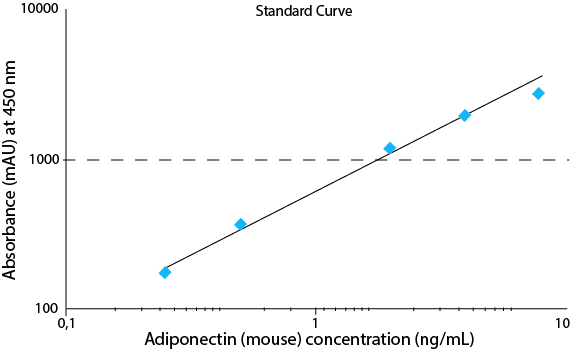Territorial Availability: Available worldwide directly through Bertin or your local distributor
Technical Warning: Check the Additional Items Required section of this kit booklet to verify if UltraPure Water (Milli-Q or equivalent) is needed for this assay
- Correlated keywords
- ELISA
- spi-bio
- spibio
- kit
- enzyme
- immunoassays
- A05187
- adipokines
- mouse
- mice
- rodent
- diabesity
- Product Overview:
Enzyme ImmunoAssay (EIA) is a technique to detect and quantify antigens (proteins, hormones…) or antibodies in samples. It relies on the ability of an antibody to bind a specific antigen. Either the antibody or the antigen is labelled with an enzyme whose substrate is a chromogen or a fluorogen converted in a measurable product (color or fluorescence).|Enzyme-linked Immunosorbent Assay (ELISA) is a type of EIA using a solid phase (ex: microtiter plate) coated with an antigen immobilizing the molecule to detect. Over the time, scientists have extended the term ELISA to EIAs using an antibody coating the solid phase. That explains why our EIA kits using coated antibodies are also called ELISA kits.|Adiponectin, also referred to as Acrp30, AdipoQ and GBP-28, is an 244 aminoacid protein, which is physiologically active, specifically and highly expressed in adipose cells (adipokine). Adiponectin forms homotrimers, which are the building blocks for higher order complexes found circulating in serum. Paradoxically, adipose tissue-expressed adiponectin levels are inversely related to the degree of adiposity. A reduction in adiponectin serum levels is accompanied by insulin resistance states, such as obesity and type II diabetes mellitus. Adiponectin has been shown to increase insulin sensitivity and decrease plasma glucose by increasing tissue fat oxidation. It inhibits the inflammatory processes of atherosclerosis suppressing the expression of adhesion and cytokine molecules in vascular endothelial cells and macrophages, respectively.





